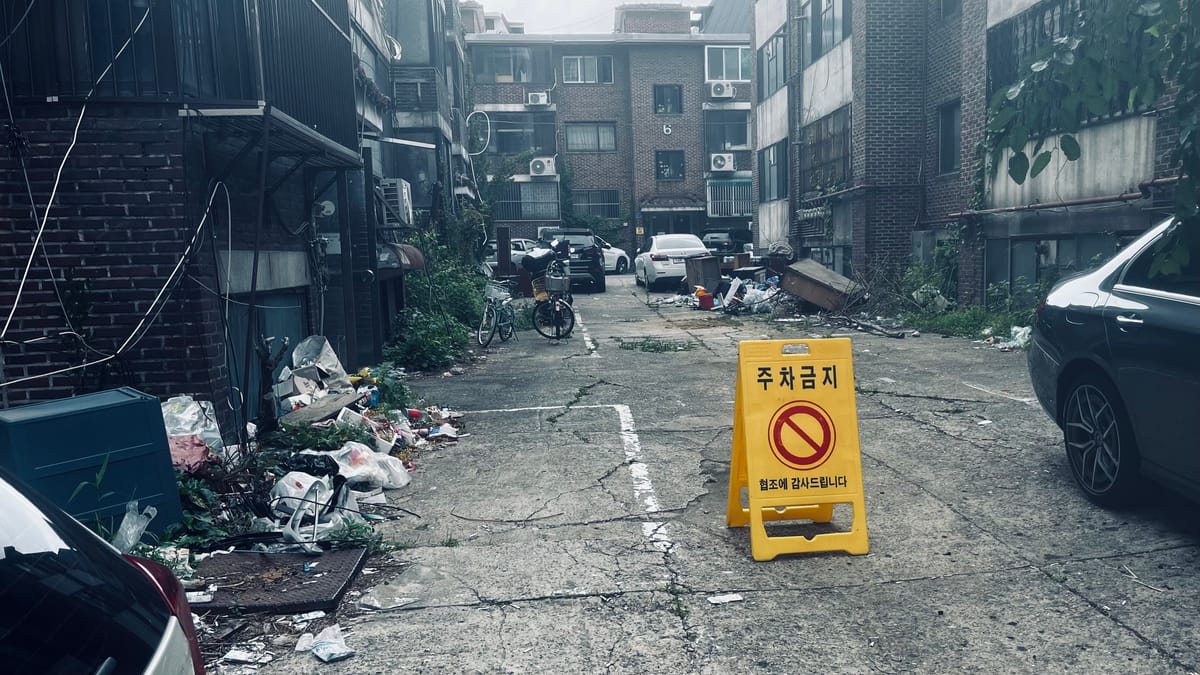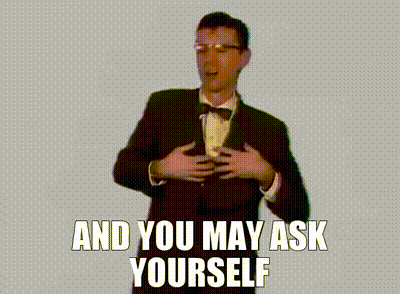Just Bin It!

Your mom doesn't work here—clean up after yourself!
Descending into the smoggy haze that calls itself home after a reprieve with a clean-sky week abroad, I was reminded of just how much filth we subject each other to in Seoul. The first place I headed after getting home was the corner convenience store. It must have been a great convenience to the “gentleman” directly in front of me queuing to pay. As I paid and left, there he stood, imbuing the next generation with such values as respect and civic responsibility. He had bought close to $50 worth of randomly assorted candies and ice cream for what I can only imagine had to be his nephew and niece. The only pass I could grant this guy was that he could possibly have already been drunk at the late-night hour of 8:30 p.m. during our encounter.
Still fumbling to open the snacks as he stood blocking the doorway and I yielded to incoming customers, he thought nothing of peeling off the top of one of the myriad items he had just acquired and, in the same motion, flinging it to the ground before making his way into the oncoming car traffic to cross the road toward a local café.
To say the juxtaposition was jarring understates the cultural differences mightily. In Japan, you could comfortably rest—or even eat—on the sidewalk without concern, but here in Seoul, the junk you wade through has you second-guessing your choice of footwear, reconsidering the sandals and opting for a more close-toed solution.
As I walked away from the convenience store, my mind couldn't help but dwell on the larger implications of this incident and countless others like it. It was a microcosm of a larger issue that has been plaguing Seoul for longer than I have been a resident—the lack of respect for each other as well as for the environment. While Seoul has made significant progress in terms of its economic development and technological advancements, it seems to have fallen behind in cultivating a collective sense of responsibility towards maintaining a clean and sustainable city.
It's not just the occasional littering incident that is the problem; it's the pervasive disregard for public spaces and the lack of awareness regarding the impact of our actions on the environment. From “accidentally dropped” cigarette butts to plastic wrappers that “missed” the bin and end up strewn across sidewalks, or the bags of “forgotten” dog poop that serve to underscore a half-hearted effort at cleaning up, the visual pollution in Seoul is hard to ignore. (Seriously, who forgets about the bag of steaming-hot dog poop in a bag that he has been carrying around for a half block? Letting it fall and walking away is no accident.) It's disheartening to see how a city with so much potential can be marred by such a simple yet profound issue.
But it's not all doom and gloom. There are individuals and organizations in Seoul working tirelessly to tackle this problem and bring about positive change. Community clean-up drives and educational campaigns are gradually making a difference. However, these efforts need to be supported and amplified on a larger scale. Government intervention in the form of consistent and certain enforcement of regulations regarding littering and waste management is a crucial step that needs to be taken. I would be in favor of lessening the severity of fines on littering if it were to ensure that each individual offense were held to account. As is all too often the case with extreme fines for minor offenses, the gray area left for interpreting the situation and selectively enforcing the policy for fear of being too strict allows for a creeping relaxation of the law.
Installing publicly accessible waste bins to promote effective waste management would go a long way in transforming Seoul into a cleaner, greener city. Merely hanging yet another new sign for Seoulites to ignore will do little to address the problem but would serve as a sinkhole for otherwise better-spent funds.
Additionally, fostering a sense of environmental consciousness and responsibility among citizens is essential. Encouraging citizens to take ownership of their surroundings and promoting a culture of respect for public spaces, each other, and above all, the generation who inherits today's mess, will be instrumental in effecting lasting change. Teaching kids today how to properly dispose of waste is an investment in both the future and the immediate present.
As visitors and residents of Seoul, we all have a role to play. By being mindful of our own actions, such as properly disposing of trash and recycling, we can contribute to creating a cleaner environment for everyone. Small individual efforts add up to significant collective impact.
Seoul has the potential to be a shining example of a modern, sustainable city that embraces technological progress as well as environmental consciousness. By addressing the issue of littering and fostering a culture of civic responsibility, we can turn the tide and reclaim our streets. And if nothing else, let's do it for the kids.





